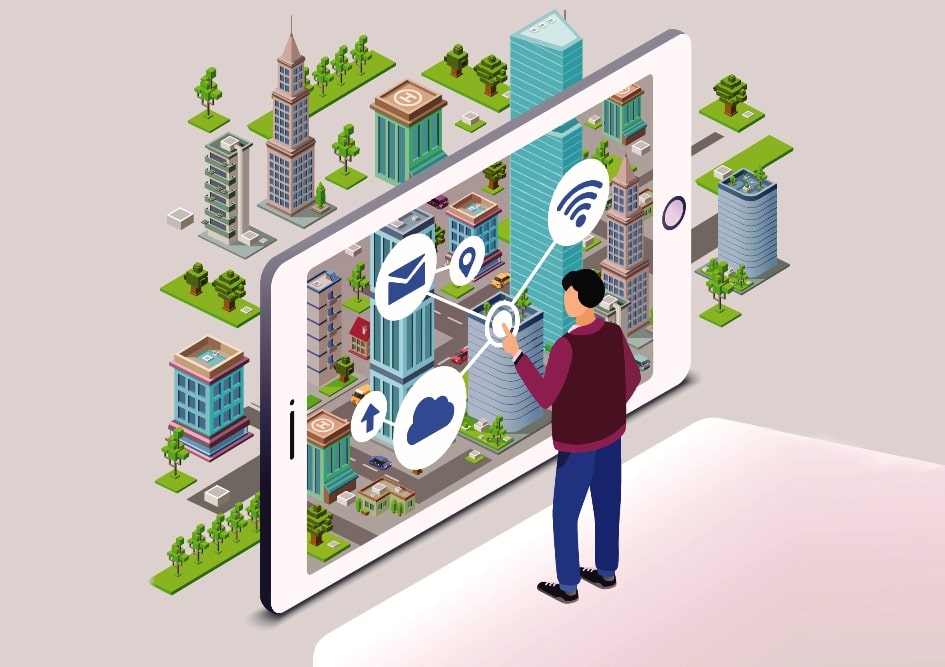Data Centers Enabling Smart Cities

Smart cities are suitable for today’s fast-paced and technology-driven lives. They help build more efficient, livable, and greener cities. Smart cities work with the help of IoT devices which manage city operations while saving costs. Thus, on one hand, city governments are continuously increasing investments into IoT technologies and machine learning, while on the other hand, smart city decision makers are focusing on solutions that emphasize on local, real-time data analysis, and interoperability to increase impact.
Smart cities have become the manifestation of economic growth. Thus, the policymakers think that as the urban population continues to rise, the number of cities in the smart-city club is going to increase too. They will be the focal point for people, ideas, business developments, and economic growth. To accommodate such growth and population the smart city setup needs supporting infrastructure at all levels. For a smart city, the foundation of this infrastructure and by extension, the scheme of its success will come down to the management of the colossal data and IT that powers them.
The network in a smart city will be multifunctional. It will use intelligent computing to improve electricity distribution, renewable energy as a power solution, depend on intelligent devices, have an automatic traffic control system, and apply big data analytics.
Smart cities depend on smart networks to make the urban environments intelligent and thus, improve the quality of life for its residents. But, smart cities will only be possible if the digital infrastructure is in place to support all the technology in the city and deliver responses in real-time. The smart city will function with edge data centers taking into account the big data and dependency on devices and applications, the network in a smart city will be seamless.
The success of a smart city project is dependent on the technology infrastructure that supporting the innovation in the project. And anything that completely based on its devices, sensors, and technology requires an optimized data center strategy. This will help the government, businesses, and people to have smart, dependable, and flexible solutions that provide them with growth and choice. A wrong strategy in this regard can act as a major hindrance for basic technical functions and innovations in the smart city project.
Taking Care of the Volume
The physical infrastructure of smart cities will comprise of IoT devices and connected sensors which will generate data. This data will be utilized to perform various functions like redirecting traffic, managing power, turning power and heating off when not in use, and allotting cars to free parking spaces.
The applications running the smart city are based on connectivity and produce lots and lots of data. Hence, data storage and computing power at the data center will be the cornerstone of a smart city. Swift access and action for this data will not only enable the municipalities to work effectively, but will also offer a competitive advantage.
Most of the advantages of smart cities will come through real-time processing of this data. For example, sensors on the road will enable vehicle actuated control to limit queuing of traffic, but functions like this will only be feasible if they work in real-time.
Smart city concept offers multiple benefits, but if the data center and technology is not according to the requirement it can be potentially tragic. Sub-par performance of the network can cause energy system shutdowns, transportation disruption, outages in hospitals and schools. Data Centers become critical in such an environment. As these cities are completely dependent on the network, the functioning and safety of a smart city, it requires decentralized energy generation and data storage system, a data center that is near, and a content delivery network that is secure.
We are moving towards a time when most of the larger cities across multiple countries will be considered smart cities. The technology is available and the world has started witnessing successful implementations of smart cities. We can say it is only a matter of time, as we start putting the technology in place along with capable data centers to support it.









Leave a Reply